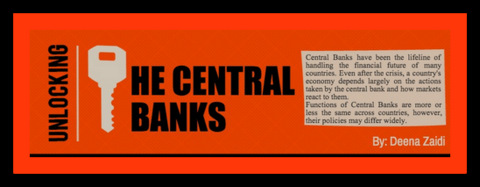Central Banks are the backbone of an economic system. Any fracture can create serious concerns for the financial future of the country. In recent years, there have been numerous articles raising questions about the credibility of central banks. This article focuses the basics of central banks with a strong focus on its relation with the financial crises.



